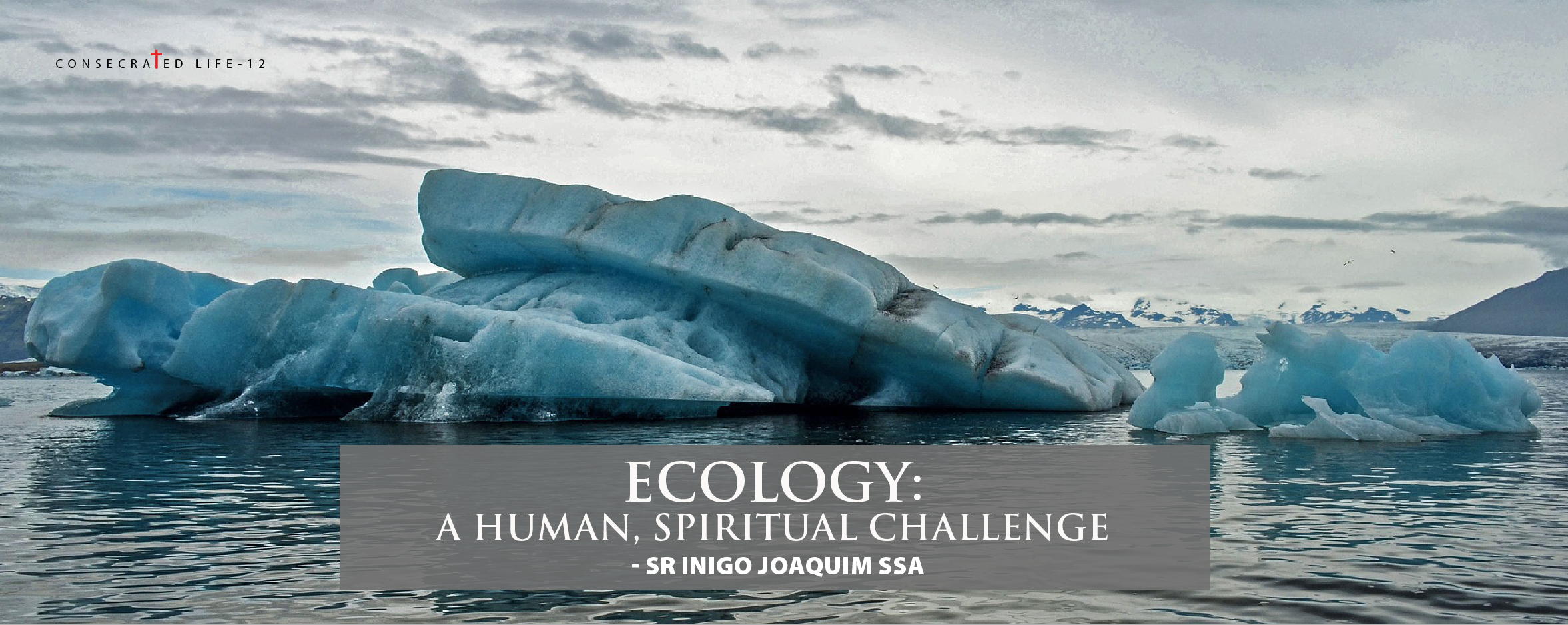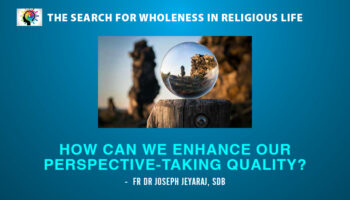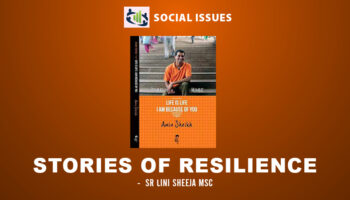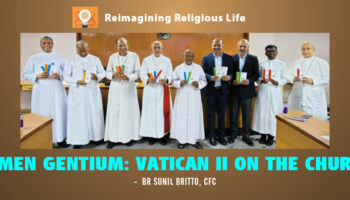Everything in this world is sacred; nothing is secular. Everything is a divine manifestation. The earth or the universe is God’s work and gift to us. You cannot fight for its rights unless you have a profound love for it. We cannot truly pray to God the Father of all, if we do not treat other beings in a brotherly or sisterly fashion, because all are created in God’s image. It was this scriptural message that led Francis of Assisi to take a radical decision to consider everything as God’s child, including the inanimate creatures like “Brother Sun” and “Sister Moon.”
But nowhere is the destructiveness of selfish individualism manifested more clearly and dangerously than in our destruction of the environment. Scientists have shown that the burning of oil, coal and gas emits carbon dioxide into the atmosphere. We have been doing this since the industrial revolution. At present, such emissions send seven billion tons of carbon dioxide into the atmosphere every year. All of this is collecting around the globe like a giant blanket that has the effect of warming the earth beyond the normal temperatures of the past. It is known as the “greenhouse” effect. Now we have increased this thickness by 30%.
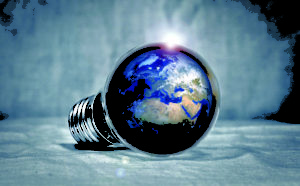 The greenhouse effect will cause and is already causing extreme weather conditions: devastating droughts in some places, killer floods in other places, widespread failure of agriculture and therefore food scarcity and, most destructive of all for the human race, the rising of sea-levels everywhere. Sea levels will rise, because the warming of the oceans will expand the volume of water. At first it was thought that such results were still a long way off. But the scientists now announce that global warming is happening much faster than had been anticipated and it will soon cause a permanent, world-wide, giant tsunami. As a result, all forms of marine life will be affected. This is called the depletion of bio-diversity. No one had previously fully realized that this would be one of the effects of global warming. The human race itself may die. We need to give up the idea of having unlimited resources. Our wants have become needs. This is suicidal for humanity. There is no use blaming just selfish business people. We are also responsible for it to some degree.
The greenhouse effect will cause and is already causing extreme weather conditions: devastating droughts in some places, killer floods in other places, widespread failure of agriculture and therefore food scarcity and, most destructive of all for the human race, the rising of sea-levels everywhere. Sea levels will rise, because the warming of the oceans will expand the volume of water. At first it was thought that such results were still a long way off. But the scientists now announce that global warming is happening much faster than had been anticipated and it will soon cause a permanent, world-wide, giant tsunami. As a result, all forms of marine life will be affected. This is called the depletion of bio-diversity. No one had previously fully realized that this would be one of the effects of global warming. The human race itself may die. We need to give up the idea of having unlimited resources. Our wants have become needs. This is suicidal for humanity. There is no use blaming just selfish business people. We are also responsible for it to some degree.
The call to mission is not only for the humans. Every creature is created with a purpose and therefore missionary. Every creature is faithfully moving forward to reach the goal for which it was created. When there are so many trustworthy, faithful servants around us, how about our mission? In our busy schedule and mechanised life, we have no time for nature. The Pope has said that the ecological crisis must be seen as a spiritual and moral issue. Has it become a topic of conscientization in our mission? If we accept God as protector, we should protect the Earth with responsibility.
We need a new integrated creation spirituality, an earth-friendly spirituality. In God’s on-going mission, we, as human beings, have a responsible role to play. We cannot use the goods of the earth as we used them in the past. We are not outside creation to dominate and destroy it. We are part and parcel of creation. If we think that we are different from nature, we will destroy it. When we feel part of nature, we will protect it. This is Eco-spirituality. Our superiority is given to us not to dominate but to guard and protect creation. We should be carers and bearers of life. The oppression of women often seems to go hand in hand with the destruction of nature and environment. It is exploited not only for human benefit but also for human greed!
Laudato Si, the Pope’s encyclical on ecology, reminds us that our common home is like a sister with whom we share our life and a beautiful mother who opens her arms to embrace us. This sister now cries out to us because of the harm we have inflicted on her by our irresponsible use and abuse of the goods with which God has endowed her. We have come to see ourselves as her lords and masters, entitled to plunder her at will. The violence present in our hearts, wounded by sin, is also reflected in the symptoms of sickness evident in the soil, in the water, in the air and in all forms of life. We can awaken our hearts and move towards an “ecological conversion” in which we see the intimate connection between God and all beings, and more readily listen to the “cry of the earth and the cry of the poor” (No. 49)
In our religious communities, we need to cultivate an “ethics of enough” and be careful in our usage of electricity, water and paper. We can creatively celebrate eco-friendly festivals and encourage our companions and friends to reduce, re-use and re-cycle. We can observe the “Earth Hour” and decide in all communities, in a synchronized manner, to switch off lights, unplug all household appliances, electric and electronic gadgets at least one hour once a week. Let us be merciful to nature and plan and practice an eco-friendly life-style and reduce our needs. Otherwise our irresponsibility and lack of concern for the earth, our common home, will affect future generations in destructive ways. We should pass on to them a livable, life-giving planet, not a badly damaged home or a desert.
Questions for Reflection/Discussion:
- How aware am I (are we) of the seriousness of the ecological crisis?
- What have I (we) done to simplify life to use our resources more responsibly?
- Do we bring this issue to the attention of our students and formees in a clear, serious and systematic way?
- Do we see ecology as moral and spiritual issue?
- Have I (we) read “Laudato Si” and studied its recommendations?
- Point out three natural disasters caused by earth warming.
- “There is enough for human need; there is never enough for human greed.” How is greed the cause of the destruction of the environment?
- What positive steps have I (we) taken to make the earth a better place—planting trees, protecting trees, not throwing waste around, using natural (rather than synthetic) products, keeping surrounding clean, not throwing waste into water bodies or common grounds, etc?
- Is the morality or religiosity we practise and teach limited to private matters, or does it include social, political and ecological responsibility?
- As a result and sign of your ecological responsibility, what changes will you effect in your life style?

To subscribe to the magazine Contact Us
